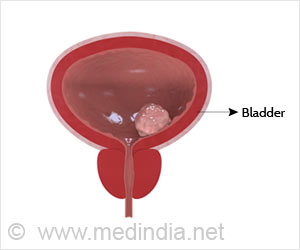Discover the hidden struggles that women with epilepsy in India face. This suggests the urgent need for tailored care.
- Approximately 1.5 million women of childbearing age in India are affected by epilepsy, emphasizing the urgent need for tailored care
- Women with epilepsy can plan pregnancies with proper management, collaboration among specialists, and careful medication adjustment
- Comprehensive treatment approaches, including medication, surgery, and collaboration between neurologists and gynaecologists, can significantly improve outcomes for women with epilepsy
Epilepsy in Pregnancy-Management Principles and Focus on Valproate
Go to source). This underscores an urgent requirement for tailored care and assistance. Epilepsy impacts approximately 50 million people worldwide, with a substantial portion residing in India, where an estimated 10-12 million individuals are affected. However, social stigma and reluctance to seek medical help often obstruct women from accessing the necessary care. Concerns related to reproductive health pose a significant challenge among women with epilepsy. Nevertheless, experts emphasized that appropriate treatment can enable women to lead normal and healthy lives.
Why Indians Fail to Seek Treatment for Epilepsy?
Dr. Siby Gopinath, an Epileptologist and Professor of Neurology at Amrita Hospital, Kochi, highlighted the concerning treatment gap in managing epilepsy, particularly in low-resource settings like rural India. With nearly 1.5 million affected women in India, special attention must be given to those of reproductive age, given the unique challenges pregnancy poses. Issues such as the teratogenic effects of antiepileptic drugs (AEDs) and increased infertility rates are significant concerns (2✔ ✔Trusted SourceReproductive health effects and teratogenicity of antiepileptic drugs
Go to source).
Did You Know?
Nearly 1.5 million women of reproductive age in India are affected by epilepsy, highlighting the urgent need for specialized care and support.
Can Women With Epilepsy Plan a Pregnancy?
Experts emphasized that women with epilepsy can plan pregnancies if they have been seizure-free for two years or more. Collaboration between neurologists, gynaecologists, and paediatricians is crucial to managing medications during pregnancy and addressing any seizures promptly.Dr. AK Sahani, Director and Chief of Neurology at the Indian Spinal Injuries Centre (ISIC) in New Delhi, stressed the importance of addressing the unique challenges faced by women with epilepsy, including social stigma, to ensure they receive the necessary medical attention. He emphasized the significance of planning pregnancy to avoid harm from anti-epileptic medications to both the baby and the mother (3✔ ✔Trusted Source
Management of epilepsy in women
Go to source).
Treatment for Women With Epilsepy
Regarding treatment options, Dr. Amlan Mandal, Senior Consultant in Neurology at Narayana Hospital RN Tagore Hospital, outlined a comprehensive approach involving medical history, physical examination, and various investigations. Treatment may include anti-seizure medications, though finding the right medicine and dosage may take time. Surgery may also be considered, especially in cases of drug-resistant epilepsy, such as removing brain tumours, or utilizing Deep Brain Stimulation (DBS) when the origin of seizures is unclear.While epilepsy presents challenges, early diagnosis, appropriate treatment, and collaborative care can significantly improve the quality of life for affected individuals, particularly women of reproductive age.
References:
- Epilepsy in Pregnancy-Management Principles and Focus on Valproate - (https://pubmed.ncbi.nlm.nih.gov/35163292/)
- Reproductive health effects and teratogenicity of antiepileptic drugs - (https://pubmed.ncbi.nlm.nih.gov/15557546/)
- Management of epilepsy in women - (https://pubmed.ncbi.nlm.nih.gov/30857949/)
Source-Medindia
















